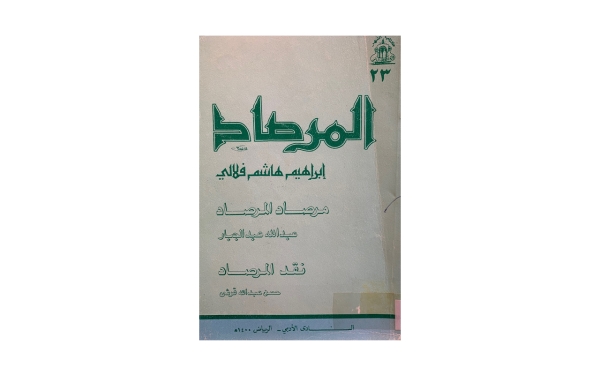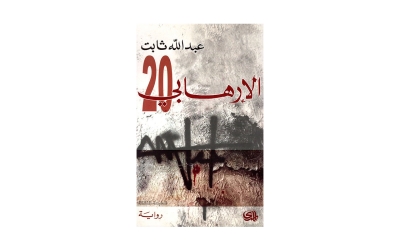
Al-Mirsad (The Monitor) is a book dedicated to critiquing the works of authors and writers in Saudi literature. It is considered one of the earliest books of literary criticism published during the formative years of the Saudi literary advancement. The book consists of three parts compiled into a single volume and was co-authored by Ibrahim Hashem al-Filali, Abdullah Abduljabbar, and Hasan Abdullah al-Qurashi.
Publication of al-Mirsad Book
The initial release of al-Mirsad Book was in three separate small volumes. The first part was published in 1951 in al-Manhal Magazine as a special issue comprising forty-two pages, by Abdulquddus al-Ansari. The Modern Literature League in Cairo published the second part, comprising eighty-seven pages. Later, Abdullah Abduljabbar released Mirsad al-Mirsad (The Monitor of the Monitor), an eighteen-page supplement to the book.
The book's second edition was published in three parts. The first and second parts were published in 1956, and the third in 1955. The first part contained sixty-three pages, the second eighty-eight pages, and the third sixty-seven pages. The Literary Club in Riyadh published the third edition in 1980, incorporating Mirsad al-Mirsad by Abdullah Abduljabbar and Naqd al-Mirsad (Criticism of the Monitor) by Hasan Abdullah al-Qurashi.
Contents of al-Mirsad Book
The first part of al-Mirsad Book opens with an introduction in which the author presents his views on correct literature and explains the reasons for writing the book. He then critiques poems published in the Saudi al-Bilad Newspaper's special issue from February 24, 1947, including works by Ahmad Qandil, Mohammed Hassan Faqi, Hussein Arab, and others.
The second part starts with a foreword and an introduction, followed by evaluations of various poets' works, including Khamr wa Jamr (Wine and Coal) by Adnan Asaad and some poems by Mohammed Saeed al-Amoudi. It also critiques the book Shu'ara' al-Hejaz fi al-Asr al-Hadith (Hejaz Poets in the Modern Era) by Abdussalam Tahir as-Sasi and others.
The third part begins with a foreword and an introduction. Then the author briefly provided his opinion on criticism and the responses to al-Mirsad Book. Then, he proceeded to critique Fi Rubu' Aseer (Throughout Aseer) by Mohammed Omar Rafie', as well as the book Tarikh Makkah al-Mukarramah (The History of Makkah al-Mukarramah) by Ahmed as-Suba'i and the plays of Abdullah Abduljabbar, and others.
Criticism in al-Mirsad Book
Al-Mirsad Book does not follow a critical methodology; rather, it relies on subjective opinions and personal taste. The book critiques words, phrases, and poetic passages. The book is free of references or external sources.
Related quizzes
Related articles


